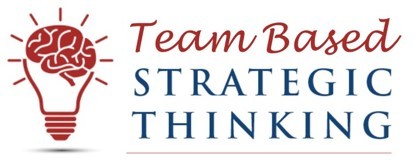Your Culture Is A Reflection Of You As A Leader (#8 Article)
Do you feel like sometimes no matter what you do or say, or how you act as a leader, it has no effect? You’ve undertaken a comprehensive “top down, bottom up” approach to creating your strategy, you’ve undertaken focus groups and held town halls, but still the strong gravitational pull of your cultural planet stops you getting lift-off when it comes to execution.
“No battle plan ever survives first contact with the enemy,” Helmuth von Moltke, a 19th-century head of the Prussian Army, famously observed. So if we run the analogy that your corporate strategy or business plan is akin to your battle plan, what is left after it makes first contact with the market? It is only your people and how they will make decision in a VUCA environment.
You can only now hope you have given them the correct resource, processes and technology and above all, created the culture to be successful. The difference between winning and losing is their approach to strategic thinking and collaborative problem solving. As the famous management philosopher Peter Drucker once said, “The only strategy that is relevant is the one your people have in their heads when they make a decision.”
There are many definitions, frameworks, models, and methodologies around culture and cultural change. I do not intend promote or review any particular one except to provide a definition to put context to this discussion. Culture is the collective beliefs and values system that an organisational unit (like a team) reverts to under everyday pressure when it makes choices or decisions.
It is the sum of the collective habits and is observable as behaviours. The leader(s), whether formal or informal, has the greatest impact on the culture. There is debate about how long it takes to change a culture. It is very much situational to the specific organisation. There has to be either a “burning bridge” or a “burning passion” to drive the culture change. You do not get much change in two years and it can take longer, much longer than you anticipate, and usually twice as long as the average tenure of a typical CEO.
In our new complex world you can, at best, align or contextualise your strategy to the culture and vice versa. For example, post-World War II industrialisation saw a significant focus on the doctrine of economies of scale and process efficiencies to drive unit cost of production down in markets that became rapidly commoditised. Operational excellence was the mantra and the boards of directors rewarded leaders who were zealots in delivering cost reductions and process efficiencies through conformity and control.
Many of these young line manager of the late ’80s and ’90s are now the senior executives (who were brought up in the command and control era) of major corporations around the world. Their strategic challenge is now to become more innovative, a task that their organisations are culturally inept at doing under their leadership. This manifested itself at a country level when the Australian government, under Prime Minister Malcolm Turnbull, launched “Innovation Nation” program in 2016. Do you think the Swedes need to do this as a country to encourage a culture of innovation? I think not!

